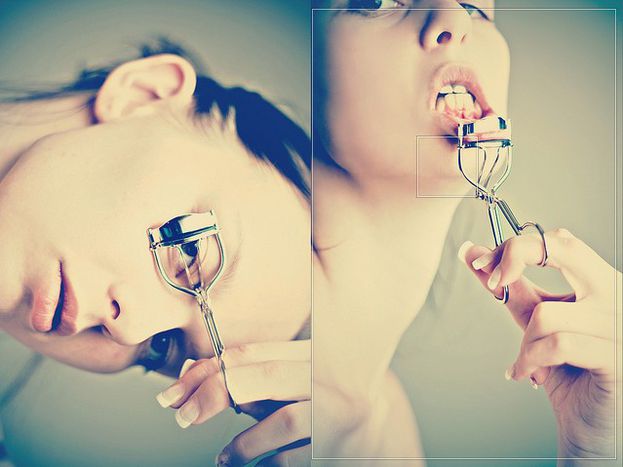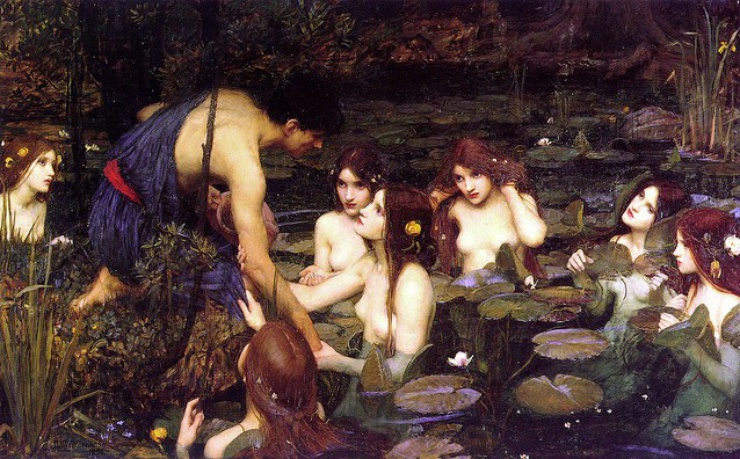
Catherine Hakim: women, use your erotic capital
Published on
Translation by:
Annie RutherfordAcross the British media over the last few weeks, London-based sociologist Catherine Hakim argues that erotic capital is missing from the economic, cultural and social capital that we all command. The basic principle is simple: take care of your appearance! Beautiful people earn 13% more than their averagely attractive colleagues. However, this is just the beginning
Everyone commands economic, cultural and social capital. French sociologist Pierre Bourdieu says that this explains social differences and success. Catherine Hakim, from the London school of economics (LSE), says something is missing. Take Christine Lagarde, the new French head of the international monetary fund (IMF). She is a shining example of a woman who purposefully brings her erotic capital into play, according to Hakim.
There's good news for all women of this world who are not called Angelina Jolie, and for all men whose surname is not Pitt: erotic capital can be obtained! It is only partly inherited! Hakim differentiates six different elements of erotic capital: beauty, sexual attractiveness, social skills, liveliness, social presentation and sexuality. Generally women have considerably more erotic capital then men because – and listen carefully – they work harder on it! So far, so good. It’s just silly that women hardly use this capital in the world of work. Hakim, a self-titled feminist, says both men and women are to blame for this. To be more precise, patriarchal society and feminism are to blame.
Boobs, not brains
Catherine Hakim hardly touches on this in interviews but her article Erotic Capital, which appeared in the European Sociological Review in 2010, goes into much more detail. ‘As women generally have more erotic capital than men, men deny its existence or that it has a value. They have taken steps to make sure that women cannot legitimately exploit their relative advantage.’ According to Hakim the patriarchy inhibits women from using their erotic capital. In other words women are talked into feeling guilty when they do so. Such women are perceived as stupid – why would they use their erotic capital other than to hide their lack of intellect and specialist knowledge? No brains, just boobs. Sometimes erotic capital is a disadvantage.

Hakim believes we also find this male perspective in the social sciences. ‘Erotic capital is overlooked because it is mainly possessed by women and the social sciences have generally overlooked women, focusing on male activities, values and interests.’ Hakim calls this ‘patriarchal preoccupation’. However – and this is the interesting part of Hakim’s concept – women also have themselves to blame! Hakim claims that instead of separating themselves from this patriarchal perspective, feminist theories have rather strengthened the moral claims against the use of erotic capital. This goes back to a false dichotomy: from a feminist point of view a woman is either valued on the basis of her human capital (education and brains) or her erotic capital (appearance). The two just don’t go together. Admittedly Hakim softens her criticism somewhat here, saying that feminist discourse is multifaceted and continually changing. In the end though, she reduces feminism to a simple maxim: women are necessarily victims of male oppression. The sex-cudgel is also on the line: according to Hakim many feminists are suspicious of heterosexuality because it lands you straight ‘in bed with the enemy’. As a result, feminist social sciences also deny the insight that an attractive appearance and sexuality are power assets that women can bring into play against men.
Going in the wrong direction
Catherine Hakim’s essay provokes many interesting questions – and yet heads in the wrong direction. It is important to ask ourselves whether women really are partly to blame for the inequality between their wages and those of men: across the European union men’s hourly wage before tax is 17% higher than that of women. In an interview with the German newspaper Focus Online Hakim says that women ‘frequently don’t apply for jobs and willingly give men the precedence in promotions. They don’t want to sit in the office until late at night and place more importance than men on their family and so less on success at work.’
Are women partly to blame for the inequality between their wages and those of men?
It remains questionable whether bringing erotic capital into play is the solution. Hakim’s attempt to make her concept of erotic capital into a social theory which appreciates female perspectives is particularly welcome. However, in the end she gets tangled up in a trite and undifferentiated criticism of feminism. The solution for overcoming the patriarchy appears to be quite easy for Catherine Hakim: use your erotic capital – and hop into bed with the enemy.
Images: main 'Beauty Is An Ugly Business' (cc) candinski/ Flickr; video (cc) euronews/ Youtube; nymphs (cc) Gandalf's Gallery/ Flickr
Translated from Los, Frauen – nutzt euer erotisches Kapital!



